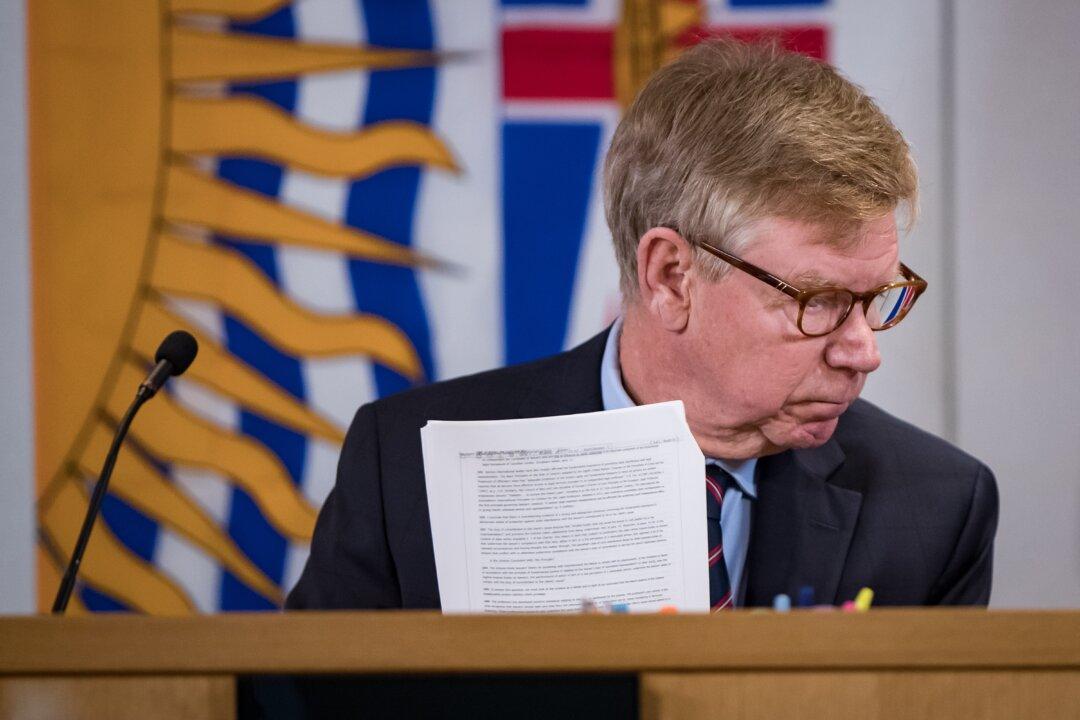Former British Columbia gaming minister Rich Coleman and senior RCMP officers caused a “tsunami” of casino money laundering, said the province’s former solicit-general, according to a transcript of a Cullen Commission public inquiry.
The statement was made by Kash Heed, the former B.C. Minister of Public Safety and solicitor-general, in a July 2018 phone call with Fred Pinnock, the former officer-in-charge of the RCMP Integrated Illegal Gaming Enforcement Team (IIGET).





